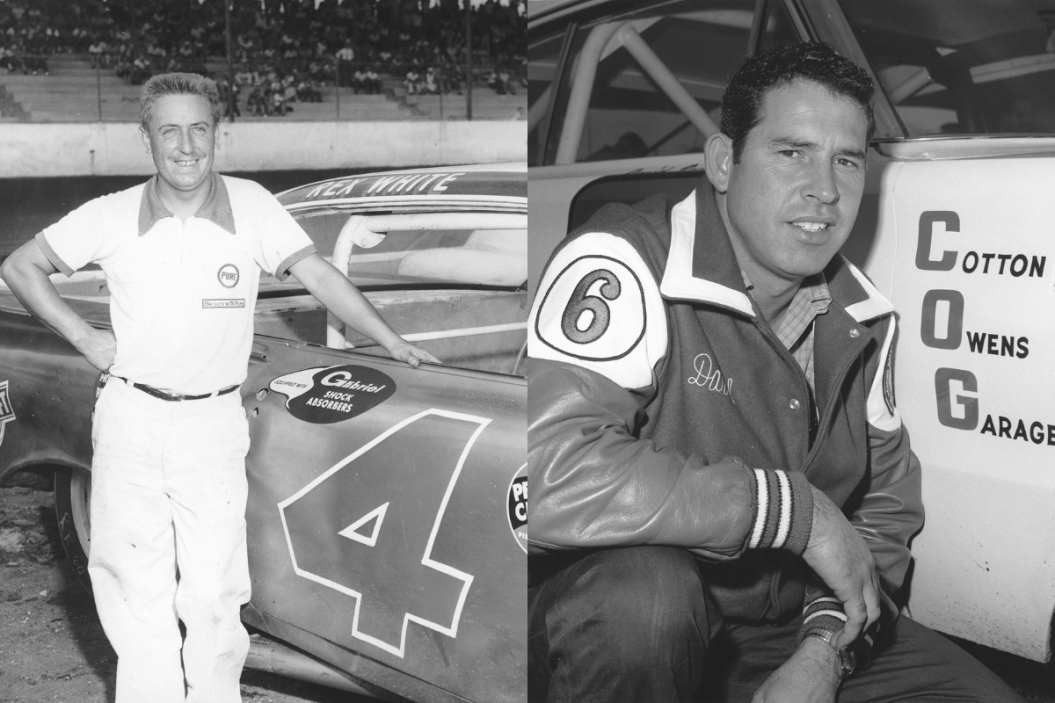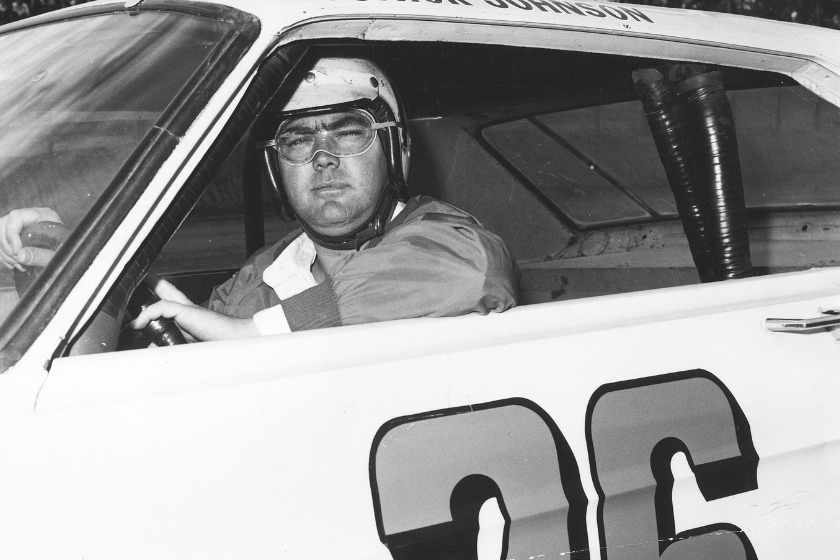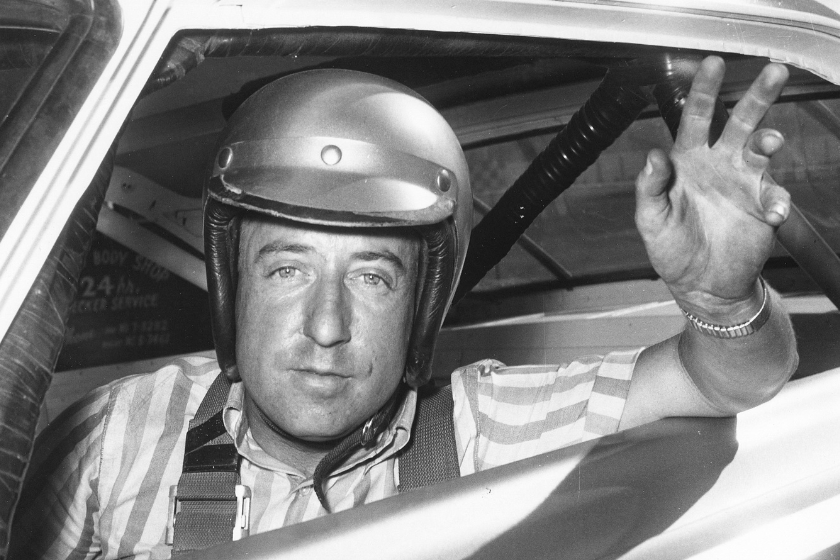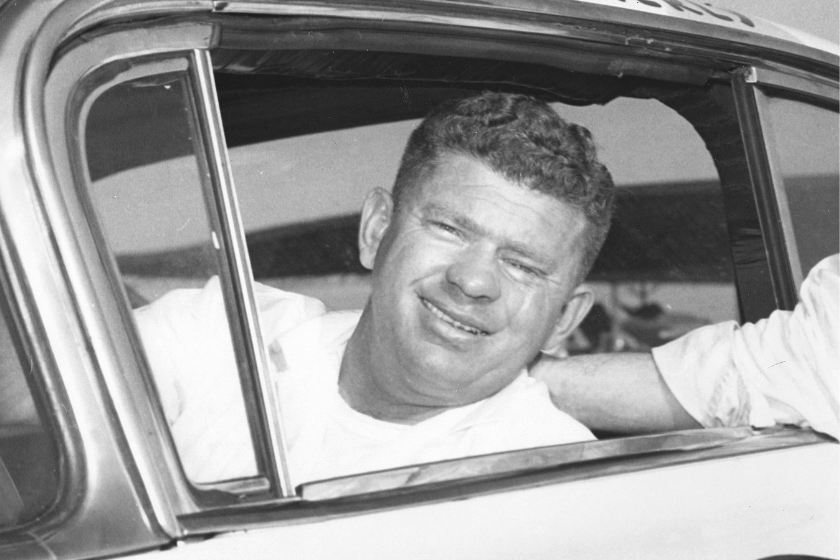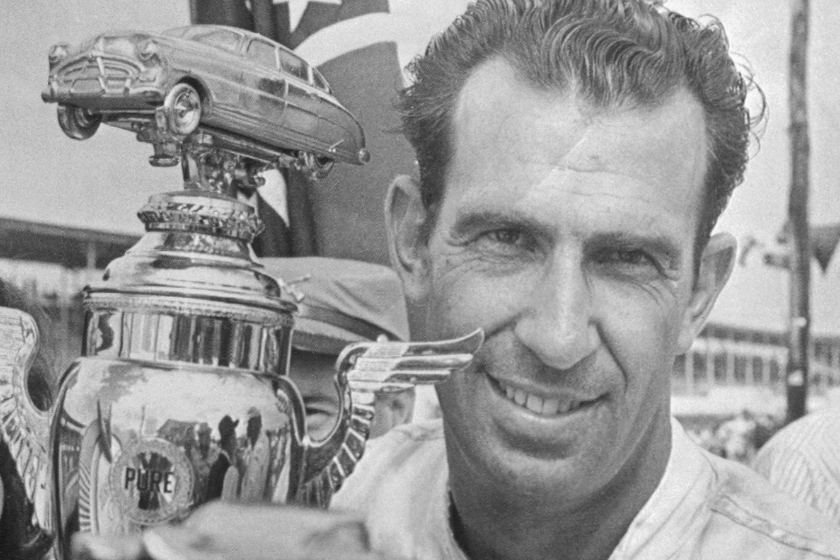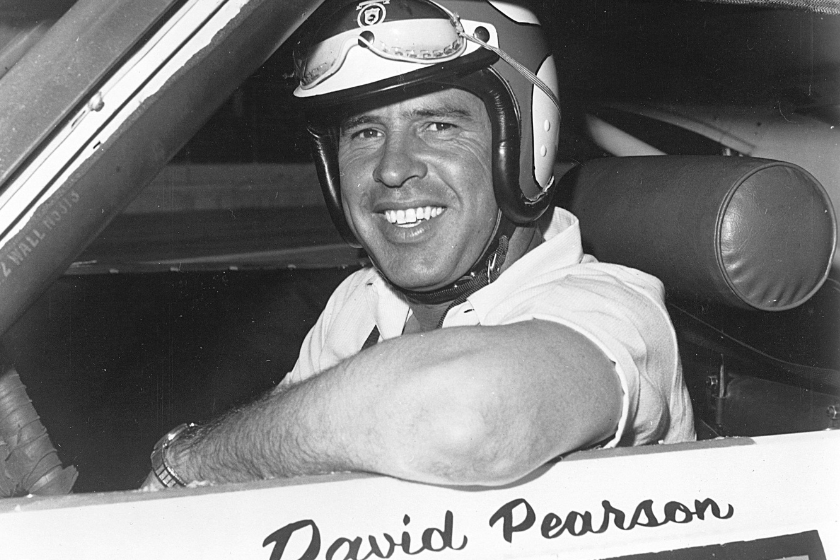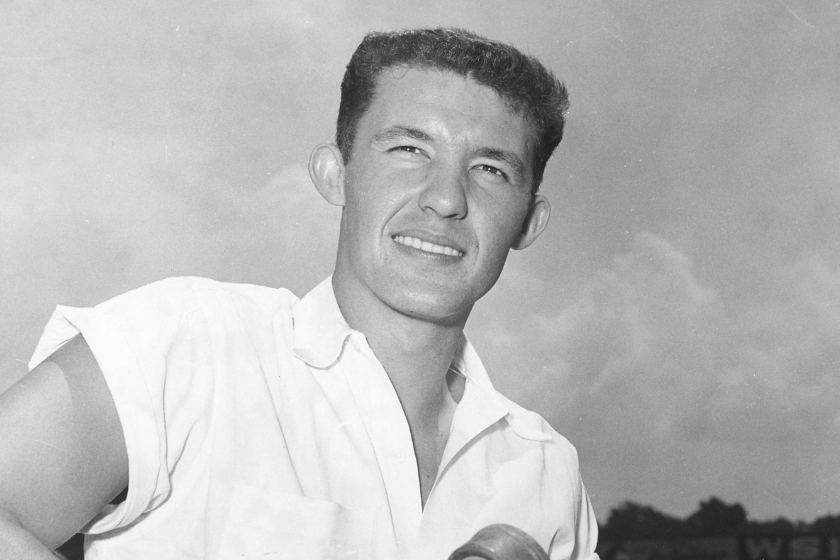The 1960s was a pivotal decade for the sport of NASCAR. This period of time, when the premier series was known as the NASCAR Grand National Series, was defined by a number of rule changes, the beginning of live race telecasts, and, towards the end, a rise in tensions between drivers and fans.
Videos by FanBuzz
Throughout the ups and downs of these years, there was also some damn fine racing put on by the most legendary drivers in NASCAR history. Here, we'll look at the six best drivers from the '60s, all of whom are Hall of Famers and all of whom are revered for their indisputable contribution to the legacy of stock car racing as a whole.
6. Junior Johnson
Junior Johnson may have started his career as a NASCAR driver in the early '50s, but the "Last American Hero" was a true force to be reckoned with from 1960 to 1965, which was his final full season in the Cup Series. The famous bootlegger and pioneer of the drafting technique came into the 1960 season as a short-track star, but he also showed his prowess as a superspeedway racer when he won the Daytona 500 that year. Thirty-four of Johnson's 50 Cup wins came during the 1960s, with his best season coming in 1965, during which he won 10 races and 13 pole positions.
When Johnson retired in 1966, he did so as the winningest driver to never win a championship, though he would go on to win six titles as an owner, winning three with Cale Yarborough (1976, 1977, and 1978) and three with Darrell Waltrip (1981, 1982, and 1985).
5. Rex White
Junior Johnson may have won the 1960 Daytona 500, but it was Rex White who truly dominated that season. The Taylorsville, North Carolina native not only won six races in 1960 (making him the winningest driver in the Grand National Series that year), but he also finished outside the top 10 in only five out of 40 races. By the end of the season, White was the Cup champion, the winner of the Most Popular Driver award, and the winner of the Driver of the Year award. His total earnings for winning the title only amounted to $13,000. For context, the winner of the Cup title nowadays makes around $10.5 million. Here's another fun Rex White fact for you: standing at 5'4" and weighing in at 135 pounds, White is the smallest man to ever win a NASCAR championship. Proof that, when it comes to NASCAR, it's not the size of the dog in the fight, but the size of the fight in the dog.
White followed up his impressive 1960 season with a solid overall showing in 1961, winning seven races and finishing second in points. Out of the 47 events he ran in that year, the member of the 2015 Hall of Fame class racked up 29 top-five finishes and 39 top-10s (a career best). Most NASCAR fans these days may not even be familiar with Rex White's accomplishments, but the NASCAR history books will forever remember him for putting on an absolute clinic on the racetrack in the early '60s.
4. Joe Weatherly
While Joe Weatherly was known as the "Clown Prince of Racing" for his constant partying and his pre-race antics (he once took practice laps while wearing a Peter Pan suit), the racer hailing from Norfolk, Virginia accumulated some seriously impressive accolades during the early 1960s. In 1961, the same year he was named Most Popular Driver in the Grand National Series, Weatherly led the series in wins (nine). Weatherly repeated that same feat the following year, again winning nine races, but this time having a Cup title to show for it. He won his second championship for Bud Moore Engineering in 1963.
Part of a stacked Hall of Fame class that included Wendell Scott, Rex White, Fred Lorenzen, and Bill Elliott, Weatherly was tragically killed in 1964 during a race at Riverside International Raceway. His head went outside the car and struck a retaining wall, which killed him instantly. He was the first reigning champion of the NASCAR Cup Series to die during a season as the defending champion. The second would be Alan Kulwicki, who died in a plane crash in 1993.
3. Ned Jarrett
Known as "Gentleman Ned Jarrett" for his calm demeanor on and off the track, the two-time champion proved to be an iconic driver long before his stint as an equally-iconic racing broadcaster, having won 48 of his 50 career events during the '60s. Coming off a fairly impressive 1960 season, during which he won five races and ultimately finished fourth in the standings, Jarrett won his first Cup title in 1961, with 22 top-five finishes and 34 top-10 finishes out of 46 races.
After several more years of fairly consistent racing (Jarrett finished third in the standings in '62, fourth in '63, and second in '64), he won his second championship in 1965. Not only did he win 13 races and place in the top five in 42 of the 54 races that he ran that year, but Jarrett also solidified his status as a NASCAR legend even further when he won the 1965 Southern 500 by a whopping 14 laps, which is the largest margin of victory in NASCAR history. Jarrett would go on to retire in 1966. Talk about ending on a high note!
2. David Pearson
For his Hall of Fame finalist nomination, NASCAR claimed in an official statement that David Pearson was "the model of NASCAR efficiency during his career. With little exaggeration, when Pearson showed up at a race track, he won." That pretty much accurately sums up Pearson's proficiency as a stock car racer. And, as second on NASCAR's all-time wins list with 105 victories, Pearson did the majority of his winning during the 1960s.
Pearson kicked off the decade strong with a Rookie of the Year win in 1960. After that, it was off to the races (pun very much intended). "The Fox" racked up 222 of his total 355 top-10 finishes in the 1960s, with 178 of those being top-fives. He won 57 races and three Cup Series championships (1966, 1968, and 1969). Especially considering how much NASCAR has changed over the years, it's hard to imagine that those stats are even real. It's Pearson's accomplishments during the '60s that makes his rivalry with Richard Petty, our No. 1 driver on the list, all the more iconic.
1. Richard Petty
"The King." Every NASCAR fan and their grandma is familiar with Richard Petty's famous nickname. But, do you know when and how he got that regal moniker?
It was after Petty's insane season in 1967, when he accomplished what no driver had done before and what no driver has been able to do since. That year, Petty won 27 races. Ten of those wins came in a row. Needless to say, his eventual championship win that season (the second of his seven titles) bookended one of the most impressive runs in the history of sports. Add that to Petty's other accomplishments in the '60s: 101 wins (two of them being Daytona 500 victories), 319 top-10 finishes, 63 top-fives, and his first title in 1964, and it's clear why Richard Petty was "the King" of the 1960s.
